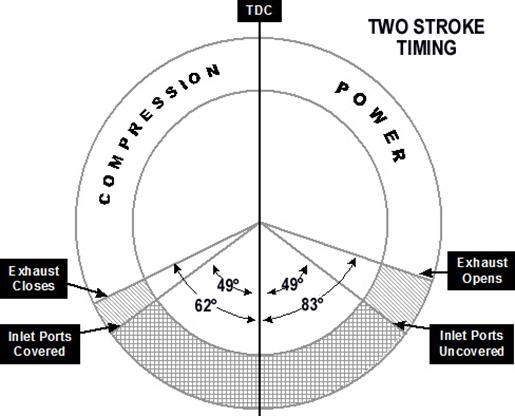Diet Tips: When Does Time to Eat?
There are many different opinions out there when it comes to dieting. People have different diets and nutrition plans, and some people swear by their diets while others focus more on a balanced lifestyle. One important factor when it comes to dieting is the timing of meals. When should you eat and what should you eat during those meals? Here are some diet tips to help make meal planning easier for when the time comes to eat!
1. Introducing the Power of Timed Eating
Eating on Schedule
We’ve all heard of dieting, counting calories, or portion control as the keys to good health. But have you ever heard of the concept of timed eating? Timed eating involves being aware of when and how often you eat, rather than just what you eat. It’s an emerging concept that has recently made its way into the public discussion and offers some exciting potential benefits.
Timed eating is based on the idea of fitting our bodies into natural rhythms, and eating within a consistent timeline has been shown to have huge effects on overall health. From impacting hormones and metabolism to regulating hunger and cravings, timed eating can help regulate a person’s weight. Here are just a few key benefits:
- Improved metabolic rate
- Optimized digestion
- Say goodbye to cravings
- Heightened energy
- Better sleep
The goal of timed eating is to get your body into its natural, healthy rhythm so that you feel your best and long-term success with health and wellness becomes much more achievable. It’s time to discover the secrets to keeping your body healthy, happy, and energized: timed eating!

2. 3 Reasons Why Timing Your Diet Matters
Eating meals at regular times is a great way to keep yourself on track with your diet. But why is timing so important when it comes to what you eat? Let’s take a look at three main reasons.
- Maximizing Nutrient Absorption. Eating regularly helps to balance your blood sugar levels, which helps your body absorb and utilize nutrients from the foods you’ll eat.
- Reducing Cravings. Timing your meals will keep you from feeling hungry and having cravings. When your blood sugar levels remain high, you’ll feel better fueled throughout the day, making you less likely to reach for that afternoon candy bar.
- Being in Tune with Your Body. By timing your meals, you can get a better sense of when you’re truly hungry and when you may be eating out of habit.
By setting a regular eating schedule, you’re not only helping your body break down food and absorb nutrients, but staying mindful of when you’re eating as well. When you stay in tune with your body, you can gain better overall control of your health.
3. Unlocking the Benefits of Timed Eating
Regularly scheduled meal times provide you with an opportunity to maximize your health benefits – from improved digestion and nutrient absorption, to enhanced mood and productivity!
- Digestion and Absorption – Eating at the same times each day helps to regulate your body’s ghrelin and leptin levels – hormones which regulate appetite and aid in nutrient absorption.
- Mood and Productivity – Lunchtime is the perfect reset button for productivity during the day – taking just a few minutes of break between tasks can help break up your work cycle and keep you focused.
Timed eating helps your body and mind to stay on track, and can be especially beneficial for those with an irregular lifestyle or specific health requirements. Working together, a regular eating schedule can support a healthier and more productive you!
4. Crafting the Perfect Eating Schedule
Maintaining a healthy diet is not as intimidating as it may sound. is simpler than you’d think. Here are some tips that can help you create healthy eating habits.
- Set regular meal times: Start off by identifying the ideal times for breakfast, lunch, and dinner each day. This can maximize the overall nutrition value of food consumed and ensure that the body is getting the fuel it needs.
- Incorporate snacks: Snacks can serve as a powerful tool to supplement nutrition for the body. Healthy and nutrient-dense snacks can support proper nutrition absorption and also curb hunger pangs throughout the day.
- Limit convenience foods: Though they may be convenient for busy days, pre-packaged foods are typically void of any nutrition content. Try to opt for fresh fruits, vegetables, and proteins as a substitution to unhealthy snacks and meals.
Inverting conventional wisdom can also be helpful. Try start the day off with a healthy lunch and finish off with a light dinner. Or focus on consuming small numbers of calories in portions through the day. Pace your eating schedule however best works for you.
5. Improving Your Diet with Timed Eating
Timed eating is one of the most effective ways to make sure you enhance and maintain a healthy diet. Here are five tips to help you get started:
- Create a meal plan – Planning your meals a few days in advance is an excellent way to ensure that you eat proper meals according to your diet. Always include healthy options, such as fruits and vegetables, in your plan.
- Prioritize your breakfast – Skipping breakfast, or even skipping meals altogether, can have a serious detrimental effect on your health. In order to ensure you maintain a proper diet, make sure to set aside time for breakfast and make sure that it is healthy and nutritious.
- Eat small amounts more often – Try to limit your meals to small portions and eat for 5 to 6 times throughout the day. This way you can make sure that you give your body the sustenance it needs without taking in too much of unhealthy elements.
- Don’t skip any meals – Even if you are working late or have a tight schedule, try to make sure you carve out time for all your meals. Skipping a meal might lead to overeating or craving for unhealthy food in the future.
- Schedule snacks – While you may not feel the need to snack in-between meals, it is important that you get in the habit of having healthy snacks every couple of hours. Nuts, fruits, yogurt, and granola bars are all excellent snack items for timed eating.
These tips should help you create and maintain a healthy diet that also works with your lifestyle. Remember that having a balanced diet is key in order to stay healthy, so don’t skip out on meals or invest too much of your time on snacking. Taking small steps towards a healthier lifestyle is always the best way to proceed.
Asked Questions
Q: What is the best time to eat when it comes to dieting?
A: For dieting purposes, the best time to eat is usually three square meals a day. This means eating breakfast, lunch, and dinner at regular intervals of about 4-5 hours apart, and avoiding snacking in between meals.
Q: Is eating at night bad for dieting?
A: Eating at night isn’t necessarily bad — it all depends on what you are eating. Eating a balanced dinner consisting of high-fiber and nutrient-dense foods such as whole grains, lean proteins, and vegetables is an important part of a healthy diet. It’s important to be mindful of portion sizes, as eating too much at night can throw off your calorie goals.
Q: What about eating late at night?
A: It’s best to avoid eating close to bedtime, as this can interfere with your sleep schedule and cause disruptive digestion-related issues. Additionally, if you haven’t had a chance to be physically active that day, that late-night snack may be more prone to be stored as fat.
Eating healthy doesn’t have to be complicated or time consuming. With a few simple tips, you can set yourself up for success and start making progress towards your health goal. Remember, choosing the right time to eat isn’t just about what’s convenient – it’s about making sure your body gets the nutrition it needs. Go ahead and give it a try – you never know, your next meal might be the one that starts you on a healthier journey.


